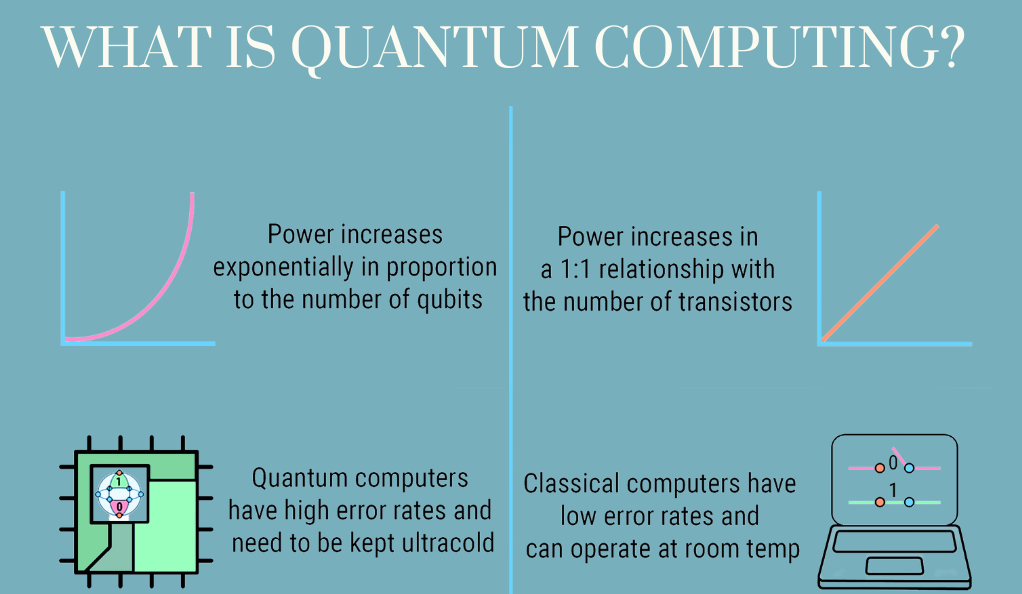Quantum computing is an enigmatic and rapidly evolving domain of technology that challenges our conventional understanding of computation. It raises a fundamental question: What if we could harness the principles of quantum mechanics to solve complex problems faster than classical computers ever could? This inquiry serves as a gateway into the intricate world of quantum computing, inviting a closer inspection of its principles, applications, and the ethical ramifications that accompany its ascent.
The very nature of quantum mechanics sets the stage for a revolution in computing. At the heart of quantum computing lies a quantum bit, or qubit. Unlike a classical bit that can be either a 0 or a 1, a qubit can exist in a state of superposition, representing both 0 and 1 simultaneously. This unique property allows quantum computers to process vast amounts of information at an exponentially greater rate than their classical counterparts. However, the concept of superposition also introduces a tantalizing challenge: how does one maintain the integrity of qubits in a system plagued by decoherence and noise? The answer remains complex, as maintaining quantum states for practical computational tasks is fraught with difficulties.
A pivotal aspect of quantum computing is entanglement, where qubits can become interlinked in such a way that the state of one qubit can instantaneously affect the state of another, regardless of the distance separating them. This phenomenon not only defies classical intuition but also enables unprecedented parallelism in calculations. However, herein lies another challenge: how can we effectively utilize this entangled state for quantum information processing? The task of managing entanglement while preventing the collapse of quantum states is an ongoing area of research that demands innovative solutions.
As we transition from the theoretical underpinnings to tangible applications, one cannot overlook the immense potential that quantum computing holds for various sectors. For instance, in the realm of cryptography, quantum computers possess the capability to break widely used encryption protocols through algorithms such as Shor’s algorithm, which can efficiently factor large integers. This presents a double-edged sword; while it poses a risk to current cybersecurity measures, it also prompts the development of quantum-resistant algorithms, ushering in a new era of secure communication. The question arises: Are we ready to confront the vulnerabilities that quantum computing may expose in our digital infrastructure?
In the field of drug discovery and material science, quantum computing offers the potential to simulate molecular interactions with unparalleled precision. Traditional computational methods often fall short in modeling complex chemical reactions due to the intricate nature of quantum mechanics. Quantum computers could revolutionize fields such as pharmaceuticals by dramatically accelerating the discovery of new drugs. However, the ethical implications of this newfound capability must be considered. As the speed of discovery increases, how can we ensure equitable access to groundbreaking treatments while avoiding exacerbating existing healthcare disparities?
Furthermore, quantum computing could significantly impact optimization problems prevalent in logistics, finance, and artificial intelligence. Quantum algorithms have the potential to conduct optimizations that would take classical computers eons to complete. Yet, as organizations eagerly embrace this technology, a critical challenge emerges: the need for a skilled workforce adept in both quantum mechanics and advanced computational theories. The potential gap in expertise could lead to an uneven distribution of technological benefits, raising pertinent questions about educational equity and access.
The ethical considerations surrounding quantum computing extend beyond mere access to technology. With incredible computational power comes the responsibility to ensure that such advancements benefit humanity rather than being exploited for nefarious purposes. There is a pressing need for interdisciplinary dialogue involving ethicists, technologists, and policymakers to forge frameworks that guide the responsible development and deployment of quantum computing technologies. How do we strike a balance between innovation and ethical stewardship?
Moreover, as we delve deeper into the ramifications of quantum advancements, the concept of quantum supremacy emerges. This term refers to the point at which quantum computers can perform tasks that classical computers practically cannot. While several milestones have been claimed, debates rage regarding the reproducibility of results and the applicability of these achievements to real-world applications. Is quantum supremacy a realistic milestone, or does it serve merely as a tantalizing concept that steps into the realm of quantum folklore?
As we forge ahead into the future illuminated by quantum technologies, we must grapple with a multitude of unanswered questions. The intersection of quantum computing with ethical challenges, societal impact, and technological accessibility mandates a multifaceted approach. Do we possess the foresight to steer quantum advancements towards a future that maximizes benefits while minimizing potential harms? This ongoing discourse highlights the urgency of nurturing a culture of responsibility in science and technology.
In conclusion, quantum computing is much more than an advanced computational method; it encapsulates a complex interplay of scientific innovation, ethical accountability, and societal progress. While it presents extraordinary opportunities for computing, it is pivotal to address the diverse challenges it poses. The journey into this quantum era necessitates a collaborative effort from all sectors of society to ensure that the horizons we explore today will lead to a future grounded in equity, responsibility, and unbridled curiosity. As we stand on the precipice of this quantum revolution, the path forward is laden with both challenge and promise.












